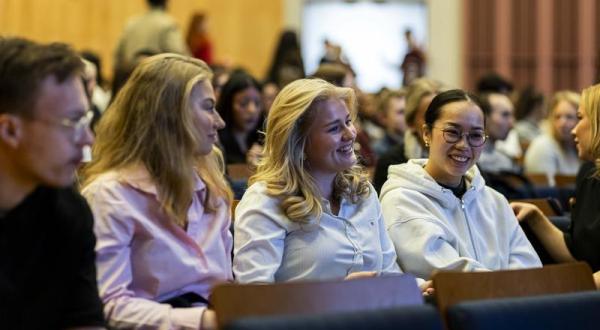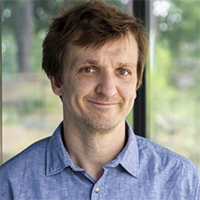RSU-organised 30th European Society for Rural Sociology Congress brings together researchers from 37 countries
From 7 to 11 July, Rīga Stradiņš University (RSU) will serve as a meeting place for hundreds of rural researchers from around the world. The 30th European Society for Rural Sociology Congress (ESRS) will be held in the Baltics for the first time, marking a significant turning point in rural research in the region. More than 500 abstracts have already been accepted for the congress, 30 book launches are planned and 400 researchers from 37 countries are set to participate.
With the theme of “Navigating rural transitions: Exploring liveable futures”, participants will be invited to focus on key processes shaping rural life – including agricultural reforms, digital inequality, demographic shifts, and climate challenges. In addition to the academic programme, participants will have the opportunity to explore Latvia’s countryside and its rich social and ecological landscapes that continue to inspire research.
‘I am pleased that RSU has been selected – amid strong competition – to host the leading European event in rural sociology, and particularly honoured that we have been entrusted with organising its 30th edition. It is a valuable opportunity to draw attention to the issues that matter most to us – rural areas as a source of healthy food and a foundation for a healthy society. The ageing and depopulation of rural communities require us to reconsider how we deliver healthcare services. At the same time, the effects of climate change, which we feel most directly through food production and public health, demand urgent attention. These and other challenges are at the forefront of research by scholars around the world. The Congress brings together international experts who will share their knowledge, while also experiencing the richness of our rural areas, which remain both under-researched and full of untapped knowledge.’
Agrita Kiopa, RSU Vice-Rector for Science
The Congress will feature 40 thematic working groups, plenary sessions and panels covering topics such as land use, rural activism, participatory governance, sustainable agriculture, infrastructure accessibility and social inclusion, among others.
This year’s Congress is particularly notable for its interdisciplinary and experience-based approach. Many sessions will be led by researchers from diverse academic fields. Thanks to collaborations with partner institutions, participants will also have the opportunity to step outside the academic setting through field trips to Latvian marketplaces, protected meadows and national parks.
‘It is an opportunity to connect the global with the local. We are creating an environment where we can learn from one another – not only in lecture halls and discussions, but also in the countryside and forests. Rural sociology is more relevant than ever, and this Congress offers a chance to reflect on the future of rural areas that are not only sustainable but also fair and inclusive.’
Miķelis Grīviņš, Sociologist and Head of the Local Organising Committee, Research Professor at RSU
More than 400 participants from around the world
Researchers from 37 countries across nearly every continent are expected to attend the Congress. Delegates will come from countries including Australia, Brazil, South Korea, China and the United States, with the largest group – 46 researchers – arriving from the United Kingdom. Nearly 40 participants are also expected from Spain and Germany, along with others from Hungary, Finland, Italy, the Netherlands and beyond. The Congress will serve as a key platform for discussions on how rural regions in Europe and around the world can adapt to change while maintaining their viability, identity and vitality.
Related news
 Welcome to winter at RSU: international students begin their studies in RigaTraditional Events, For Students
Welcome to winter at RSU: international students begin their studies in RigaTraditional Events, For Students




